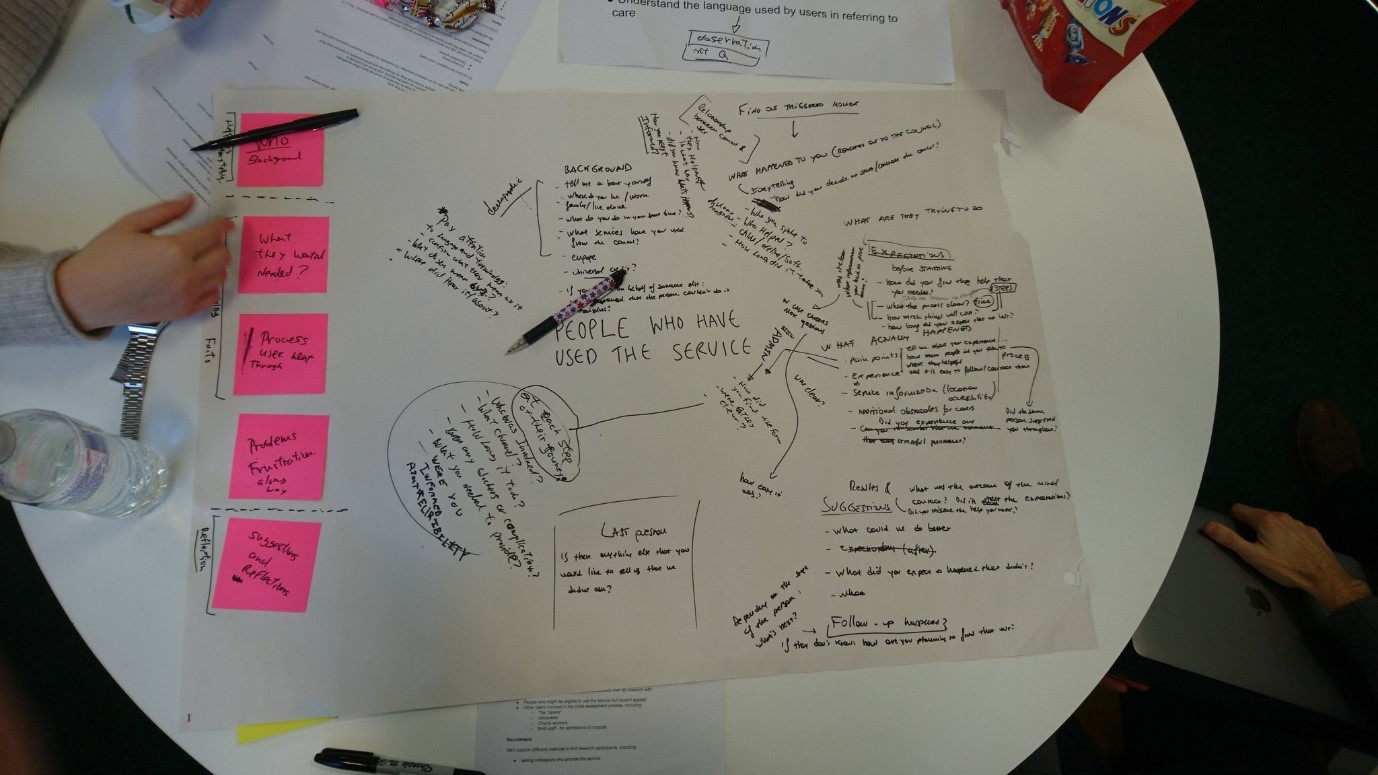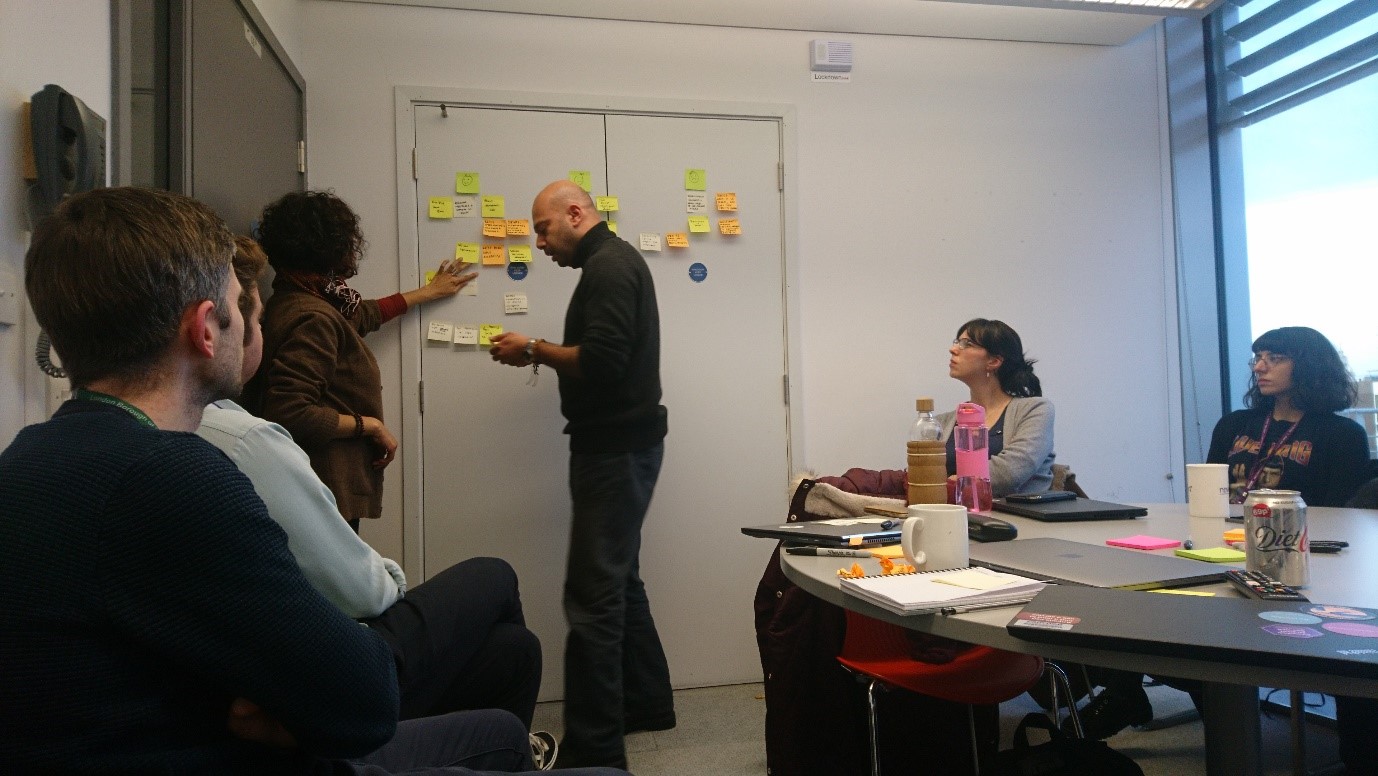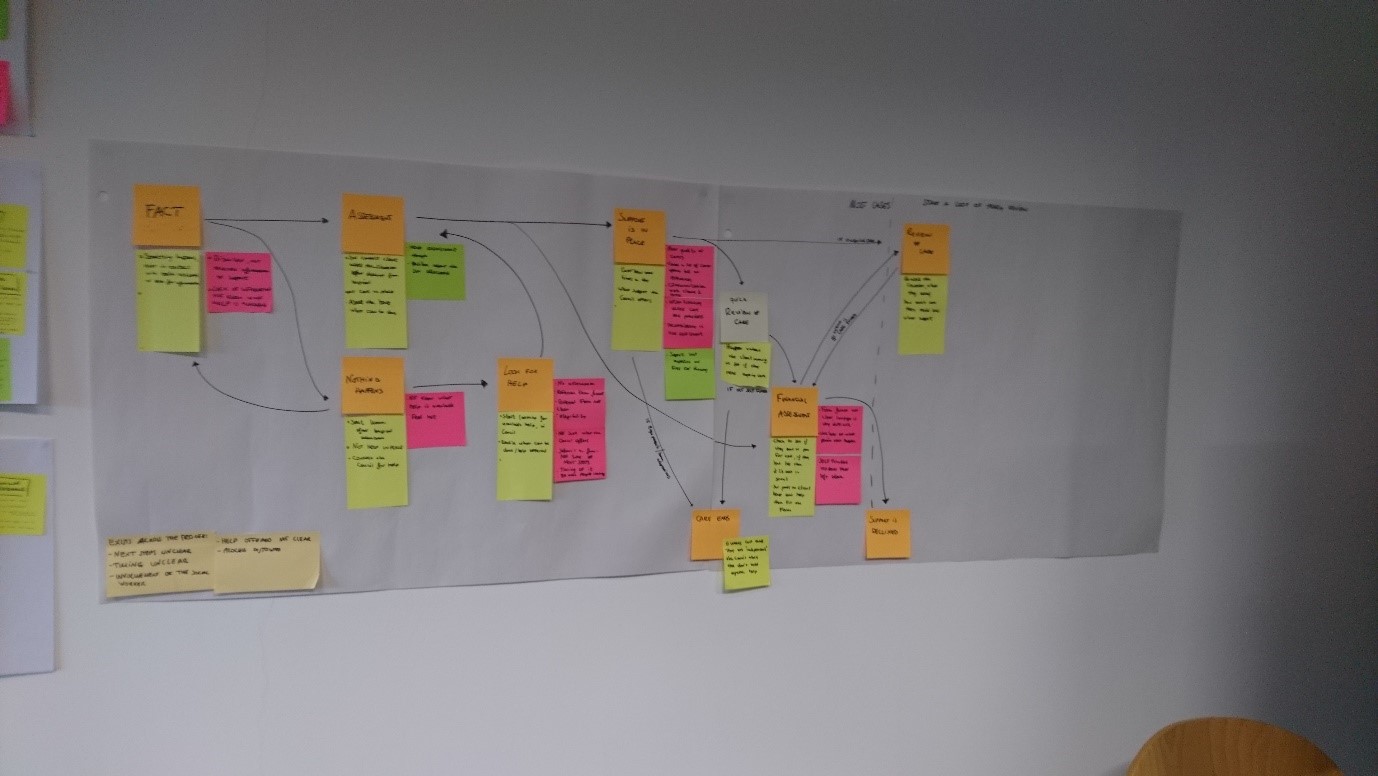
Why do we do discoveries? As we know, designing anything based on our assumptions can often lead to failed products and services. Discovery is the phase in which we learn.
We want to understand who our users are. What they're trying to do. The challenges they face and how they're currently solving them. What their needs are.
It is not about validation. It is about filling the gaps and learning the things we don’t know.
As user researchers in service design, knowledge and insight is what we look for. We do our background work. We make sure we have an understanding of the current processes, freedoms and constraints.
Our team is bigger than just us. We involve the people that know the topic area well, we include the experts… so, what happens when you are that subject matter expert (SME)?
Collaboration and Teamwork
I joined the Service Transformation team at Essex County Council November 2019. I was delighted to find that I would be working on a Ministry Housing, Communities and Local Government (MHCLG) funded project in the adult social care space. This project is about understanding the benefits of sharing between councils. To see if we can learn from each other’s work and what savings (time, efficiency, resource or financial) this could bring.
We joined Croydon, Hackney, Kent and Hertfordshire Councils in this local government cross-collaboration project. In September 2019 we made it through to round 3 and were submitting our application for funding.
Although the purpose of this project is to identify how cross-collaboration can benefit us in the future. Individually, we had to identify what would be useful to all of us. We made the decision to complete a discovery project for a statutory service that we all provide: adult social care. For us at Essex County Council, this could feed into more than one project that we are already working on.

Me, myself and I
I thought I had really lucked out. I have years of experience in Adult Social Care. This was a project that I felt instantly comfortable with and something I could add value to. I know the legal obligations. I'd spoken with the residents and professionals who contacted the council and I know the behind the scenes processes and systems.
For this project, I was the SME.
As we already know, discovery is not for validation. The issue of being an SME and the user researcher is that you are already full of assumptions and concepts, and knowledge. The question becomes “Is all this knowledge a help or a hindrance?”
Putting knowledge and experience into practice
Each council conducted their own interviews to understand the experiences of their users. We then came together to discuss our findings and themes for affinity mapping. The other councils conducted internal interviews to help understand their own internal processes before moving on to public interviews.
My experience here helped put some of their findings into context. Or rather, helped fill the gaps in unasked questions.
The question had already crossed my mind about whether I had too much knowledge. Could it lead to missed questions and more inferences? Would I be filling gaps in the user journeys because of what I already know rather than what they've said?
A research partner
As a precaution I made sure I took someone with limited knowledge of the existing service with me on my interviews. Someone who could challenge the information we reported back. Who could ask the clarifying questions.
In the end, my awareness of the possible limitations of my pre-existing knowledge was what stopped it from being a hindrance.
I had a good enough understanding of the background processes and practices to know when someone’s experience deviated from the norm or when their response isn’t ‘typical’. This meant I was able to ask more questions to understand what had happened for each user.
I was also conscious to ask questions to a level where I thought my research partner would have enough information to understand the person’s journey and be able to explain it to someone else without my input.
Having a research partner kept my research fresh
Although this knowledge seemed to be of use in interviewing, when it came to creating our archetypal maps it was harder to distance myself from all that I know. I struggled with this more than I expected.
This is where my research partner was able to challenge the steps we wrote. They made sure there was enough information so that someone who hadn’t been part of the research would be able to understand them. For this part of the discovery, my experience in Adult Social Care was more of a hindrance and that the role of an SME is to advise and check but not to create.
Awareness is important
There are both benefits and drawbacks of knowing your subject well. The most important thing is to be aware of them. There are ways to mitigate the risks of being an expert. If you aren’t prepared to be wrong, and if you only want to validate your existing knowledge and not learn new things, then your project will fail.
What I learnt

- Know your topic area. having no knowledge of a topic area is just as damaging as knowing too much. You still need to do your research, find your stakeholders and identify your users. You still need to involve the people that know these areas well. If that happens to be you, then you need to make sure you involve someone who knows very little to create that balance.
- Test your questions. This is good practice. When you’re the SME you need someone who doesn’t know the project to test them and see whether they are obtaining the answers you want without inferences.
- Ask the silly questions. Some of your questions may be there to validate what you think you know, but if you don’t ask them, all you can work with is the assumptions you made at the beginning.
- Feedback to your team after each interview. make sure you are learning and adapting from each interview you complete. This will mean if being an SME is hindering you, it can be spotted in time to make changes without damaging your project.
- Welcome and accept challenges. Encourage questions and feedback from your team members. Allow your interview partner to answer them. If your interview partner hasn’t got the information to answer, then you probably haven’t either and you’re relying on what you already think you know.
Find out more about this project and the things we found out along the way by reading our other blogs:
Croydon teams up with 4 other councils on user research
Understanding the needs of people doing user research in local government
Leave a comment